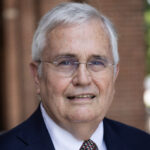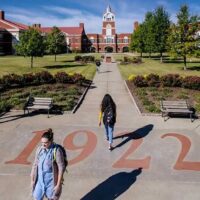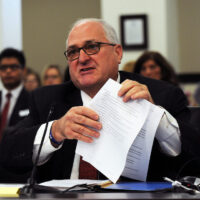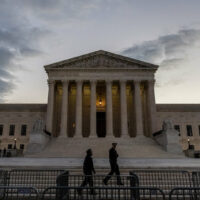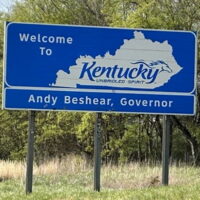The U.S. Supreme Court declined Thursday to reinstate a Kentucky federal judge’s order exempting religious schools from Gov. Andy Beshear’s ban on in-person teaching, mainly on grounds that the case was largely moot.
In an unsigned 7-2 decision, the court said, “The governor’s school-closing order effectively expires this week or shortly thereafter, and there is no indication that it will be renewed.” If it is, the court said, Danville Christian Academyand Attorney General Daniel Cameron can seek another injunction.
The school and Cameron had won an injunction Nov. 25 from U.S. District Judge Greg Van Tatenhove of Lexington, but on Nov, 29 a three-judge panel of the Sixth Circuit Court of Appeals unanimously stayed the order, accepting Beshear’s argument that it treated public and religious school alike.
Cameron and the school argued that other Beshear orders, allowing such businesses as theaters, bowling alleys and gaming halls, treated religious schools unfairly. They went to the high court Dec. 1, seeking a reversal from Justice Brett Kavanaugh, who handles such emergency appeals, called applications, from the Sixth Circuit (Tennessee, Kentucky, Ohio and Michigan).
Kavanaugh had the option of ruling or referring it to the full court. Nothing was heard from the court until late Thursday afternoon, when it issued a 325-word opinion saying, in effect, that time had largely run out. It also said Cameron and the school “did not squarely raise” at the appeals court an additional argument that they made to Kavanaugh.
Justices Samuel Alito and Neil Gorsuch dissented. Alito, in a 281-word opinion, said he understood the timing issue, but “It is unfair to deny relief on this ground since this timing is in no way the applicants’ fault.”
Gorsuch, in an 1,117-word dissent, said the majority “says we should let this one go because this case is old news; winter break is coming soon, and the governor’s decrees will expire in a few weeks, on Jan. 4.” He noted that they “remain in force, the dispute over them remains live, and the decision allowing them to stand is flawed. Nothing prevents us from saying so; no one attempts to suggest this case is moot; and the applicants are entitled to a fair assessment of their rights under accurate legal rules.”
Gorsuch also said Beshear’s orders on schools and businesses should have been considered together. Citing case law, he said “Whether discrimination is spread across two orders or embodied in one makes no difference; the Constitution cannot be evaded merely by multiplying the decrees.”
Al Cross is professor emeritus of journalism at the University of Kentucky. He was the longest-serving political writer for the Louisville Courier Journal (1989-2004) and national president of the Society of Professional Journalists in 2001-02. He joined the Kentucky Journalism Hall of Fame in 2010. The NKyTribune is the home for his commentary which is also offered to other publications.
